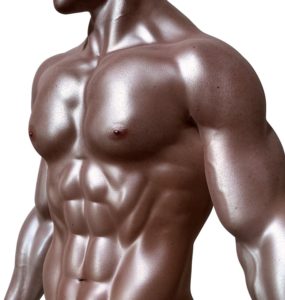Bodybuilding Diet of the Pros
Have you ever wondered how professional bodybuilders maintain a fit body? Of course, it’s all about training but note that they follow a strict diet too. So this leads us to our next question. How does a professional bodybuilders’ diet look like? Let us look further at the professional bodybuilders’ diet.
 Word of advice for beginners
Word of advice for beginners
If you are experiencing hip flexor tightness, let your trainer and your doctor know. Follow this link: https://buffedd.com/reviews/unlock-your-hip-flexors/ to help you unlock those tight hip flexors before engaging in any strenuous body building activities.
Note that if you are a beginner, this diet may not work for you. We recommend that beginners consult first with a professional trainer to provide the right diet and proper training program.
Your present health condition may actually dictate the type of muscle building training that’s right for you. Consult with your doctor to gauge if you are physically fit, to determine what areas in your body needs development.
The Pro Bodybuilders’ Diet
 The recommended diet for bodybuilders is high-protein, high-calorie diet. This type of diet helps build muscle mass and strength. High-protein, high-calorie diet means adding more protein and calories into your diet while staying away from sugar that may lead to gaining fat.
The recommended diet for bodybuilders is high-protein, high-calorie diet. This type of diet helps build muscle mass and strength. High-protein, high-calorie diet means adding more protein and calories into your diet while staying away from sugar that may lead to gaining fat.
The daily recommended protein intake is at 1.5 to 2 grams of protein per pounds bodyweight. Professional bodybuilders take as much as 3000 to 4000 calories in a day evenly distributed with 2-3 hours time in between meals.
Guidelines for Bodybuilders’ diet
 Here are some guidelines for bodybuilders following the high-protein, high-calorie diet plan:
Here are some guidelines for bodybuilders following the high-protein, high-calorie diet plan:
- Eat 6 to 8 small meals throughout the day at regular times.
- Do not skip a meal.
- Have snack foods readily available to eat when hungry
- Add a variety of healthy foods from all good food groups.
High sources of protein that should be added to your diet: lean meats, nuts and seeds, seafood, eggs, beans, low-fat dairy, and soy.
High-Calorie diet meal
 High-Calorie diet meal contains more than 800 kilocalories per day. An example would be:
High-Calorie diet meal contains more than 800 kilocalories per day. An example would be:
- Hot cereals which can be oatmeal. Add lots of milk and added fat. Use butter or margarine and less sugar.
- Granola bar or cereals. Consume with dried fruit
- Croissants, butter-milk cookies, banana bread, and muffins
- Vegetables sautéed in margarine or butter. Add cream cheese or cheese.
- Buttered potatoes
Low-calorie diet meal (Recommended before Bodybuilding competitions)
While the high protein, low-calorie diet is recommended for bodybuilders, calorie intake should be reduced when competition is near so as to burn fat build up during the high-calorie intake – This is the High-Protein, low-calorie diet which is exactly the opposite of high-calorie diet.
 Low-calorie diet meal must contain 800 kilocalories per day or less. An example of it would be:
Low-calorie diet meal must contain 800 kilocalories per day or less. An example of it would be:
- Arugula soup: arugula is a peppery green which contains low calorie, fat, and cholesterol but high in fiber, vitamins A, C, K and other nutrients including potassium. Calories: 4 per cup
- Grilled Asparagus and 6-minute egg: Asparagus is known as a detoxifier as it eliminates excess fluid out of your system due to its high level of amino acid. Calories: 27 per cup
- Broccoli and feta omelet with a toast: Broccoli is a vegetable which contains low calorie and is packed with fiber, vitamins, and minerals. Also, it provides antioxidants which may improve your odds of breast cancer survival and lessen the risk of colon cancer. Calories: 31 per cup
Supplements:
 This is commonly used by bodybuilders, weightlifters, and athletes. Most supplements that are being used are vitamins, protein, branched-chain amino acids or known as BCAA, glutamine, meal replacement products, creatinine, and weight loss products.
This is commonly used by bodybuilders, weightlifters, and athletes. Most supplements that are being used are vitamins, protein, branched-chain amino acids or known as BCAA, glutamine, meal replacement products, creatinine, and weight loss products.
Although artificial, it still has advantages in your body such as:
- It can act as a replacement for your meals without compromising nutritional needs.
- They help store energy in your body for your next workout sessions.
- It can either help you gain or lose weight, depends on how you use it.
- It helps build up muscles and strengthen your bones.
- It can help you counteract the ill effects of exercise acidosis.
There are numerous recommendations for the right bodybuilding diet. So far, the diet regime laid out above is the most commonly used. Bottom line is that proper consultation should be done before diving into any kind of diet to make sure that your body is able to absorb the right nutrients for the right activities.

 Word of advice for beginners
Word of advice for beginners